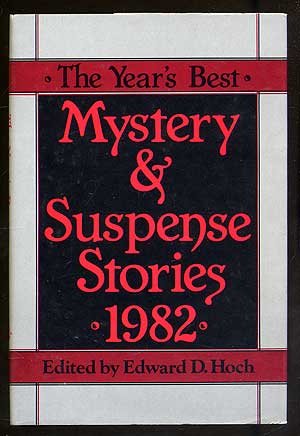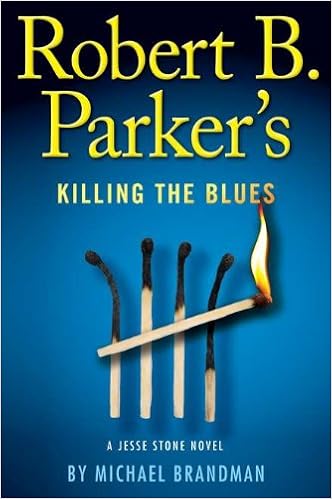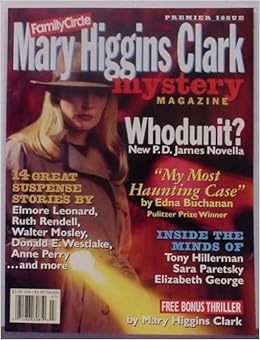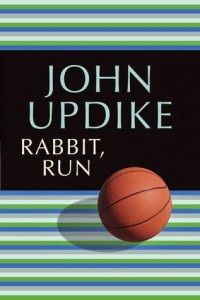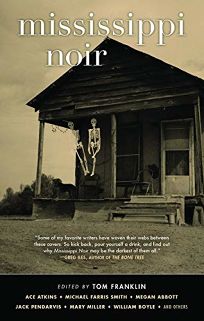I can speak only for myself. My two favorite tasks in writing a story are, for whatever reasons, (1) outlining the plot and (2) writing dialogue. Since we've had a great many columns at this blog about the pros and cons of outlining, I thought I'd focus on my second preference.
Talking points
 I love to write dialogue. Probably because I love to read dialogue. When I pick up a magazine or anthology or collection of short stories, I almost always find myself flipping through it and looking for "white space." When I find stories that have a lot of that--which of course means short sentences, which means dialogue--I usually read those stories first. Why? Because dialogue means something's happening. I'm cruising along through the tale listening to people talk (and sometimes scream and shout and argue), and not plodding through all that thick, margin-to-margin writing.
I love to write dialogue. Probably because I love to read dialogue. When I pick up a magazine or anthology or collection of short stories, I almost always find myself flipping through it and looking for "white space." When I find stories that have a lot of that--which of course means short sentences, which means dialogue--I usually read those stories first. Why? Because dialogue means something's happening. I'm cruising along through the tale listening to people talk (and sometimes scream and shout and argue), and not plodding through all that thick, margin-to-margin writing.Does that searching-for-white-space approach always work? No. Stories with a lot of dialogue, if they're not done well, can be more tiring and tedious than pure narrative, and, since there's no magic formula for all this, stories written either way can be either wonderful or terrible. I've always said dialogue is like playing the guitar: it's hard to do well and easy to do badly.
But I should point out that the amount of dialogue in a piece of fiction depends on the piece. Three of my recent published stories had almost no dialogue, and one of them had none at all. In fact, of the five widely accepted "elements" of fiction (plot, characterization, POV, dialogue, and setting), dialogue is the only one that's not absolutely necessary. Well, okay, I realize that some stories don't have to have plots either, but most good stories do. Another point: I'm convinced that dialogue is a marketing advantage. If you write two stories of equal quality and one has a lot of dialogue and one has very little, I think the one with more dialogue is easier to sell.
Masters of the craft
 My fondness for dialogue is probably one of the reasons I've so enjoyed the books of the late Robert B. Parker. His series novels, whether they're about Spenser or Jesse Stone or Sunny Randall or Virgil Cole, contain a LOT of conversations between characters. And it's snappy, believable dialogue that either moves the plot forward or tells us something about the people in the story. Sometimes it does both. Other writers well-known for the quality of their dialogue are George V. Higgins, Dick Francis, Elmore Leonard, James M. Cain, Carl Hiaasen, Toni Morrison, Harlan Coben, John Steinbeck, Janet Evanovich, Joe Lansdale, James Scott Bell, etc. Advice to fellow writers: Read these authors, then go ye and do likewise.
My fondness for dialogue is probably one of the reasons I've so enjoyed the books of the late Robert B. Parker. His series novels, whether they're about Spenser or Jesse Stone or Sunny Randall or Virgil Cole, contain a LOT of conversations between characters. And it's snappy, believable dialogue that either moves the plot forward or tells us something about the people in the story. Sometimes it does both. Other writers well-known for the quality of their dialogue are George V. Higgins, Dick Francis, Elmore Leonard, James M. Cain, Carl Hiaasen, Toni Morrison, Harlan Coben, John Steinbeck, Janet Evanovich, Joe Lansdale, James Scott Bell, etc. Advice to fellow writers: Read these authors, then go ye and do likewise.Contrast that kind of fiction with the work of, say, James Michener or Tom Clancy, whose novels usually contain very little dialogue. Don't get me wrong--I liked their books, and I have all of them right here on the packed and groaning shelves of my home office. But I also maintain that those novels were not as much fun to read as (and certainly took longer to read than) those of Parker, Leonard, Coben, and company.
According to Sol
I think all this goes beyond the "easy-read" aspect. I like dialogue because of the rhythm and sound and feel of the sentences, and the way it can immediately create a reversal or plot twist when needed. In his book Stein on Writing, Sol Stein called this "oblique" dialogue, which allows the writer to introduce the unexpected. Here are some examples, from that book:
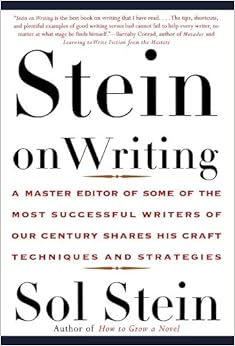 SHE: How are you?
SHE: How are you?HE: I suppose I'm okay.
SHE: Why, what's the matter?
HE: I guess you haven't heard.
SHE: How are you? I said how are you?
HE: I heard you the first time.
SHE: I only wanted to know how you were.
HE: How the hell do you think I am?
HE: It's beginning to rain.
SHE: What do you suggest?
In all of these, the responses aren't direct, as they often are in real life. They're indirect and surprising, and serve to turn the story in a different direction. It's a great way to advance the plot and keep the reader interested.
Something else dialogue can do, as was mentioned earlier, is help with characterization. In a Western mystery story I just finished writing, a man named Wade Carson is knocked unconscious while trying to rob a bank and wakes up lying with his wrists tied in a room that turns out to be a temporary jail cell. Sitting in a chair beside one of the windows is a young woman in men's clothing and boots, with a five-pointed star pinned to her shirt and a Winchester rifle across her lap.
"Where am I?" he asked her.
"In an extra room, behind the sheriff's house. He was planning to rent it out."
"I don't see any bars. What's keeping me in?"
"I am." She lifted the rifle off her lap, then lowered it again.
"And who might you be?"
"I might be Deputy Morton."
"You a real deputy?"
"This month I am." She tapped her star. "This is my uncle's badge--he's home with a broken leg."
He sighed. "An interim jail and an interim deputy."
Later, still under guard, he tells her he'd been on his way to San Francisco, to see a friend.
"Girlfriend?" she asked.
He broke out a grin. "I think you sound jealous."
"That's probably because of your head injury. What kind of friend?"
"An old partner. Wants me to go into business with him."
"What kind of business?"
Carson hesitated. "You'll think it's funny."
"No I won't."
"Banking. My friend owns a bank. And I'm good with figures."
"You're right," she said. "That is funny."
"You won't think so, when I do it. California's a booming place, these days."
"I've never been there."
He smiled again. "Want to go?"
And so on. I'm not saying these exchanges are great writing, but I am saying they're great fun to write. And I'm always pleased at how they allow a reader to be told, in very few words, a lot about the characters who are speaking.
Real vs. realistic
 The main thing about dialogue is, you have to make it sound right. Here's another quote, from Stein on Writing. "If you need proof that dialogue and spoken words are not the same, go to a supermarket. Eavesdrop. Much of what you hear in the aisles sounds like idiot talk. People won't buy your novel to hear idiot talk. They get that free from relatives, friends, and the supermarket." Stein adds, on that same subject, "Elmore Leonard's dialogue is invented. It is a semblance of speech that has the effect of actual speech, which is what his readers prize." To sum all this up, dialogue doesn't have to sound like what we really say or hear. It has to sound better.
The main thing about dialogue is, you have to make it sound right. Here's another quote, from Stein on Writing. "If you need proof that dialogue and spoken words are not the same, go to a supermarket. Eavesdrop. Much of what you hear in the aisles sounds like idiot talk. People won't buy your novel to hear idiot talk. They get that free from relatives, friends, and the supermarket." Stein adds, on that same subject, "Elmore Leonard's dialogue is invented. It is a semblance of speech that has the effect of actual speech, which is what his readers prize." To sum all this up, dialogue doesn't have to sound like what we really say or hear. It has to sound better.Do any of you writers share my obsession with dialogue? Do you find it harder, or easier, to create than other things in the writing process? Are your stories/novels usually heavy on dialogue, or not?
A final note. Having finished the eighth installment in Robert Parker's Appaloosa series (since his death those books have been written by Robert Knott, who does a good job of imitating Parker's "style" and frequent use of dialogue), I've just pre-ordered the ninth novel, Revelation. It's due out next week, and will continue the adventures of Old West lawmen Virgil Cole and Everett Hitch.
I can't wait to hear them talking to each other.

